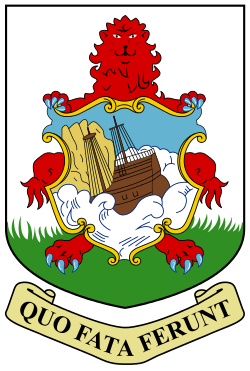| | |||||||||||||||||||||||
4 February 1983 | |||||||||||||||||||||||
40 seats in the House of Assembly 21 seats needed for a majority | |||||||||||||||||||||||
| Turnout | 80.66% ( | ||||||||||||||||||||||
|---|---|---|---|---|---|---|---|---|---|---|---|---|---|---|---|---|---|---|---|---|---|---|---|
This lists parties that won seats. See the complete results below.
| |||||||||||||||||||||||
 |
|---|
| Law |
| Administrative divisions |
General elections were held in Bermuda on 4 February 1983. [1] The result was a victory for the United Bermuda Party, which won 26 of the 40 seats.
